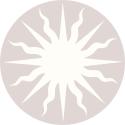Click here if you don’t see subscription options


“My soul proclaims the greatness of the Lord” (Lk. 1:39)



Vision
Thank you for the insightful article by the Rev. Robert Kress on the priest-pastor (3/11). I have found the model of the overseer to be a useful tool for encouraging pastors to delegate responsibilities to qualified members of the parish. This frees the pastor to be about the equally important work of articulating and maintaining a vision in both pastoral and liturgical contexts.
(Rev.) Joseph C. Doyle

Cautionary Note
Thank you for publishing Thomas A. Shannon’s clear and concise article (2/18) about the complex moral and ethical issues surrounding attempts at human cloning to obtain stem cells for therapeutic use, and the related question of induced parthenogenic cell division of human eggs for the same purpose. This article documents the need for care and caution by the scientific community in continuing such research and, importantly, emphasizes the very preliminary stage of our knowledge in the use of stem cells. Implied also is a cautionary note for the magisterium in its authoritative pronouncements about the beginning of human life, when it fails to consider at all the advances in the science of embryology over the last several decades. I hope we can all benefit from the expertise of Professor Shannon and his colleagues.
Robert M. Rowden




